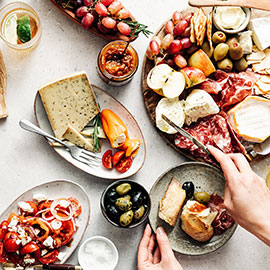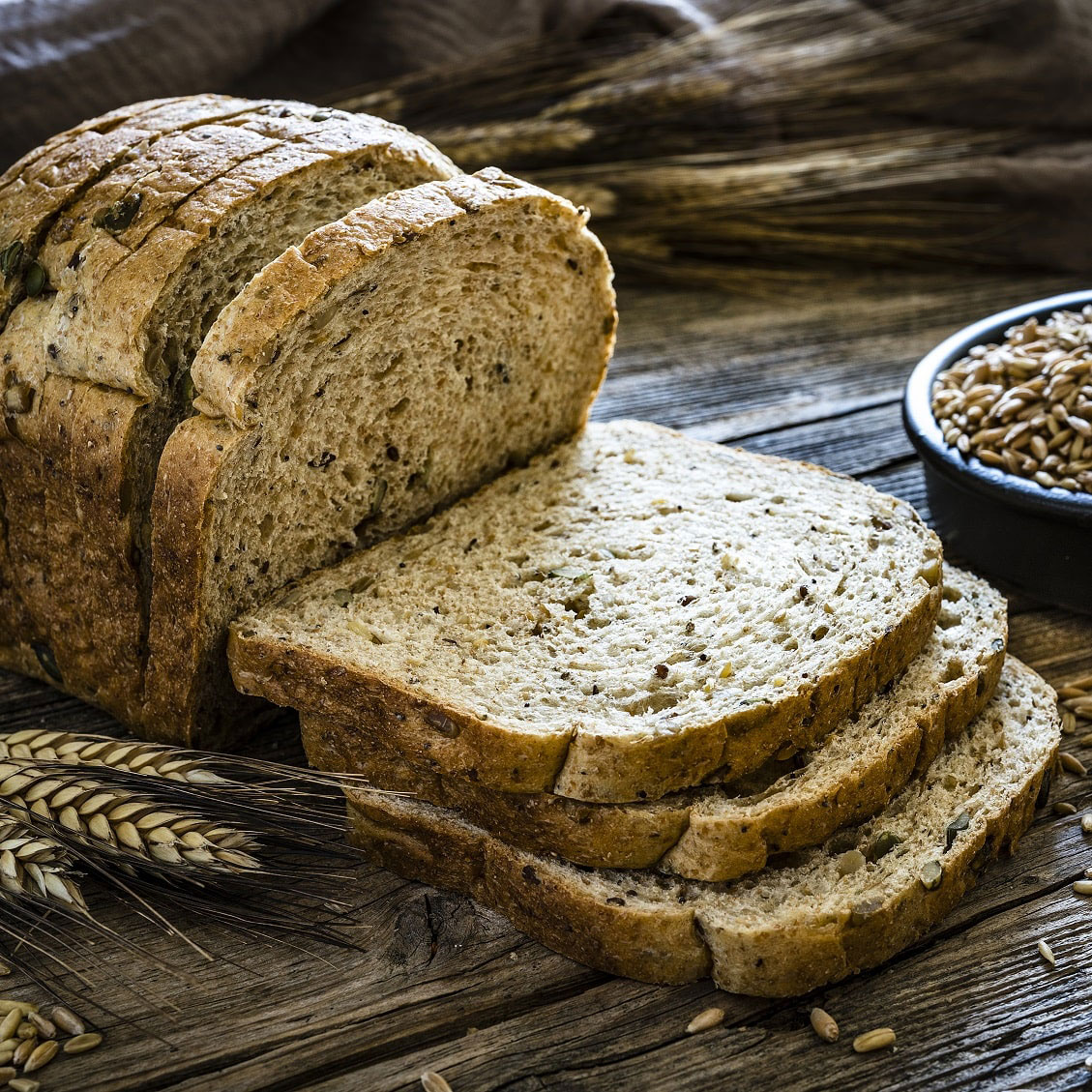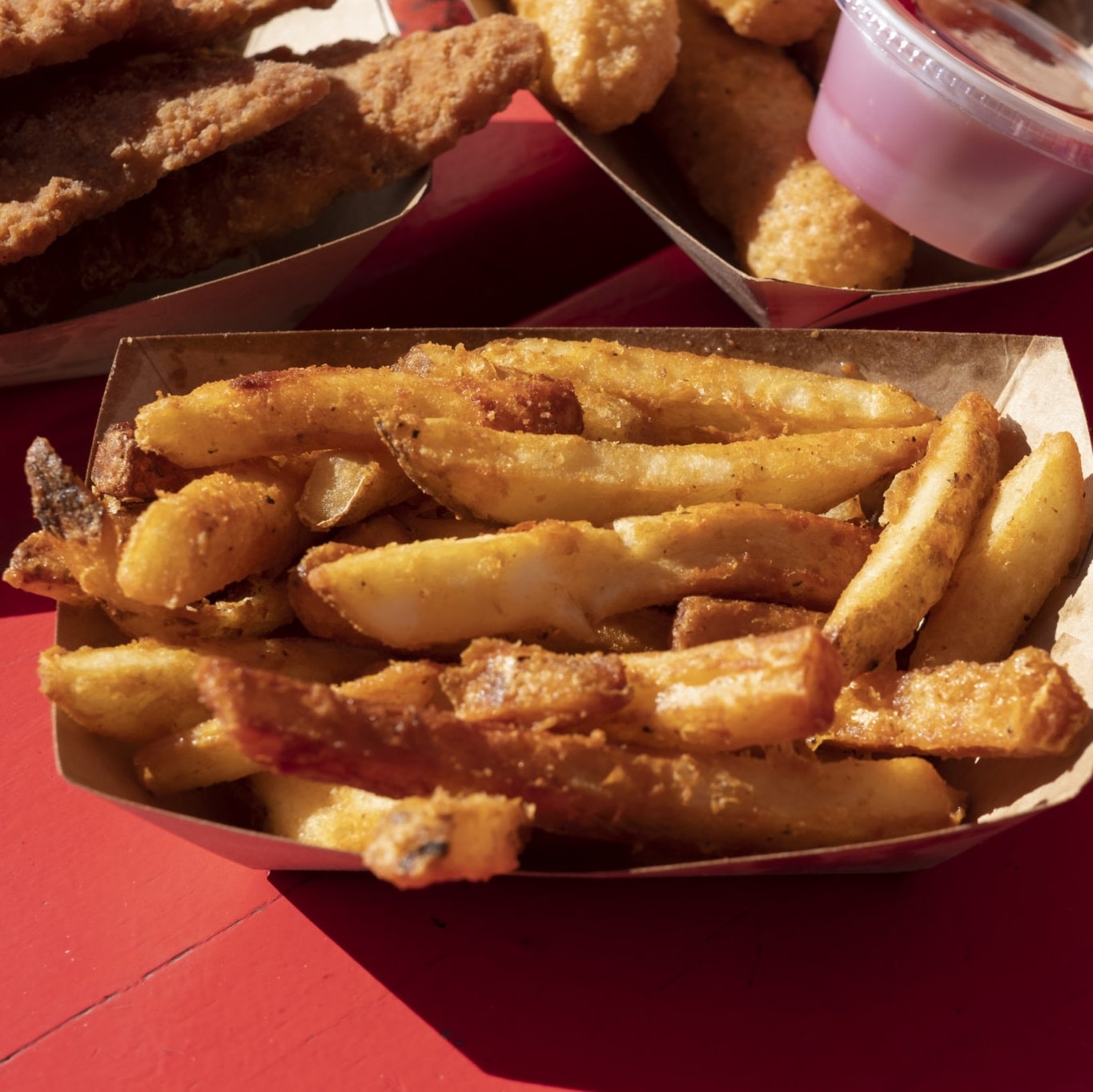5 Ways to Grocery Shop on a Budget

April 26, 2022
1. Plan around sales
Planning meals and snacks ahead of time can save time and money:
- Plan meals that include produce, lean protein foods and low-fat dairy items that are on sale and in season to save money while eating nutrient-dense foods.
- Check store sale flyers and available coupons on the same items for additional savings.
- Compare national brands and private store labels for the lowest price.
- Use the unit price to compare cost between different sized packages of the same product.
2. Create a shopping list
Create a master grocery list and stick to it. Prioritize vegetables, fruits, low-fat dairy, lean protein foods and whole grains. To keep your grocery list from growing too long, prepare meals that include similar ingredients throughout the week. Making meals from scratch when possible can help lower food cost.
3. Look for frozen or canned alternatives
If the produce item you want isn't in season or doesn’t fit in your budget, consider purchasing it frozen or canned. Canned and frozen fruits and vegetables are picked at peak freshness and can be just as nutritious as fresh foods because canning and freezing preserves many nutrients. Be sure to check the ingredients list to avoid items with added sugars or salt.
4. Buy in bulk
Consider purchasing a larger quantity of meat that is on sale and preparing enough for two or more meals. Enjoy leftovers later in the week or freeze for future use. Because meat is often the highest-dollar ingredient in a recipe, consider planning meatless meals a few nights each week, or try replacing half the meat in dishes such as chili, meatloaf or burger patties with beans, finely minced mushrooms or chopped vegetables.
Stock up on nonperishable whole grains and dried beans, peas and lentils when on sale or take advantage of the bulk bin by purchasing only the amount you need. You can prepare dried beans, peas and lentils ahead of time and then freeze so you always have protein- and fiber-rich foods on hand. Individualized portion sizes for snacks can be costly, buying in bulk and portioning at home can also save money.
5. Reduce waste
Once you've done your shopping, make the most of your food spending by cutting down on waste. Only buy the amount of perishable foods you will use, or freeze portions to prevent waste. Plan to use highly perishable items—such as fish and seafood, salad greens, berries and fresh herbs—early in the week, and save more hearty items for later in the week. Enjoy leftovers for lunch or create new meals from leftover ingredients. Cooked meat and vegetables can be revamped as a filling for a casserole, frittata or soup.
What to Put on Your Grocery List
The next time you head to the grocery store, try adding some of these items:
- Colorful Veggies
- Frozen spinach
- Broccoli
- Green Peppers
- Cauliflower
- Sweet potatoes
- Carrots
- Canned tomatoes
- Fruits
- Oranges
- Apples
- Grapes
- Bananas
- Protein
- Peanut butter
- Canned tuna (low sodium if possible)
- Dried or canned beans and lentils
- Vegetarian refried beans (low sodium if possible)
- Eggs
- Chicken in bulk (freeze portions)
- Dairy
- Yogurt
- Low-fat milk
- Grains
- Brown rice
- Whole-wheat pasta
- Whole-wheat bread
- Whole-wheat cereals/oatmeal (in bulk)
- Snacks
- Homemade Trail mix
- Homemade popcorn
- Dried fruit (no added sugar)
- Dark chocolate chips
Next Steps & Resources:
- To make an appointment with a doctor near you, call 800-822-8905 or visit our website.
- Shop Healthy on a Budget (eatright.org)
The material provided through HealthU is intended to be used as general information only and should not replace the advice of your physician. Always consult your physician for individual care.
How Many Calories Should You Eat?

When was the last time that you thought about how many calories were in your burger, chicken stir-fry dish or French toast platter?
What A Dietician Says Are the Best Diets to Try in 2022

You may be thinking about changing your eating habits to lose weight, feel more energetic, lower your blood-pressure levels or achieve a healthier lifestyle.

Try These 9 Things for Better Gut Health
We all know how uncomfortable it can be to feel bloated, be constipated or experience an occasional bout of diarrhea.

Could a Keto Diet Be Bad For Your Heart?
It may only be four letters, but it is also one of the most popular diet programs ever: Keto.

How You Can Eat Carbs and Still Lose Weight
The trick to losing weight is to eat more whole carbohydrates, such as vegetables, beans, potatoes and whole grains, and fewer refined carbs.

Worst Foods to Eat for Your Health
If you haven’t thought about whether or not the foods that you consume are truly nourishing you, take time to examine your eating habits to ensure that you’re meeting your nutritional goals.